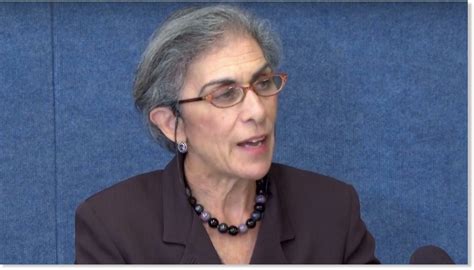A Quote by Amy Wax
Embracing cultural distance, cultural distance nationalism, means in effect taking the position that our country will be better off with more whites than non-whites.
Related Quotes
Sadly, whites are rarely open to what black and brown folks have to say regarding their ongoing experiences with racist mistreatment. And we are especially reluctant to discuss what that mistreatment means for us as whites: namely that we end up with more and better opportunities as the flipside of discrimination.
In her previous novels, Maggie O'Farrell has often measured the distance between intimates and the unexpected intimacy of distance - geographic, temporal, cultural. In 'The Hand That First Held Mine' and 'The Distance Between Us,' characters separated by many miles or many years turn out to be joined in ways they never anticipated.
In Sumter and other counties [in South Carolina] the whites are resorting to intimidation and violence to prevent the colored people from organizing for the elections. The division there is still on the color line. Substantially all the whites are Democrats and all the colored people are Republicans. There is no political principle in dispute between them. The whites have the intelligence, the property, and the courage which make power. The negroes are for the most part ignorant, poor, and timid. My view is that the whites must be divided there before a better state of things will prevail.
Since the notion that we should all forsake attachment to race and/or cultural identity and be “just humans” within the framework of white supremacy has usually meant that subordinate groups must surrender their identities, beliefs, values, and assimilate by adopting the values and beliefs of privileged-class whites, rather than promoting racial harmony this thinking has created a fierce cultural protectionism.
As long as the factories are in the hands of the whites, the housing is in the hands of the whites, the school system is in the hands of the whites, you have a situation where the blacks are constantly begging the whites can they use this or can they use that. That's not any kind of equality of opportunity, nor does it lend toward one's dignity.
Our position is extremely perilous; if we do not earnestly promote nationalism and weld together our four hundred millions into a strong nation, we face a tragedy - the loss of our country and the destruction of our race. To ward off this danger, we must espouse nationalism and employ the national spirit to save the country.
The problem is that white people see racism as conscious hate, when racism is bigger than that. Racism is a complex system of social and political levers and pulleys set up generations ago to continue working on the behalf of whites at other people's expense, whether whites know/like it or not. Racism is an insidious cultural disease. It is so insidious that it doesn't care if you are a white person who likes Black people; it's still going to find a way to infect how you deal with people who don't look like you.
Later, I would realize that the position of most black students in predominantly white colleges was already too tenuous, our identities too scrambled, to admit to ourselves that our black pride remained incomplete. And to admit our doubt and confusion to whites, to open up our psyches to general examination by those who had caused so much of the damage in the first place, seemed ludicrous, itself an expression of self-hatred - for there seemed no reason to expect that whites would look at our private struggles as a mirror into their own souls, rather than yet more evidence of black pathology.
This false distance is present everywhere: in spy films, in Godard, in modern advertising, which uses it continually as a cultural allusion. It is not really clear in the end whether this 'cool' smile is the smile of humour or that of commercial complicity. This is also the case with pop, and its smile ultimately encapsulates all its ambiguity: it is not the smile of critical distance, but the smile of collusion
There is a lot of learned material written about nationalism - scholarly books and papers, histories of it, theories of it - but most of us understand that nationalism, at its heart, at its very deepest roots, is about a feeling of superiority: We are better than you. Our country is better than your country.




































